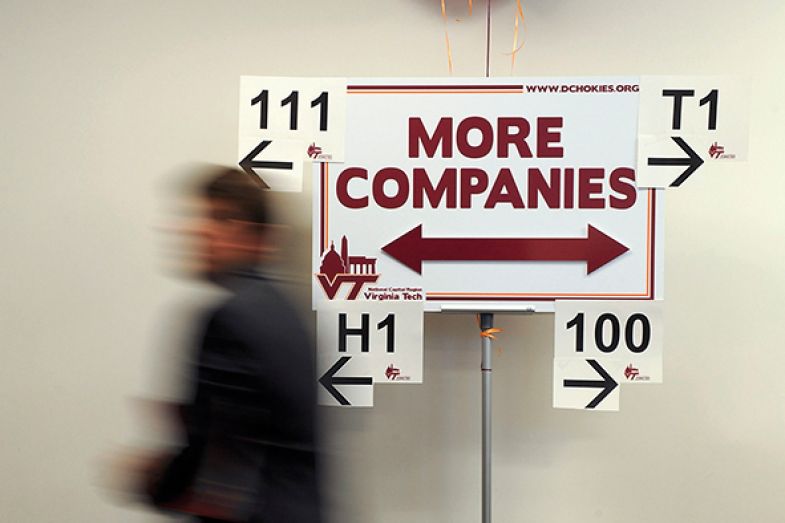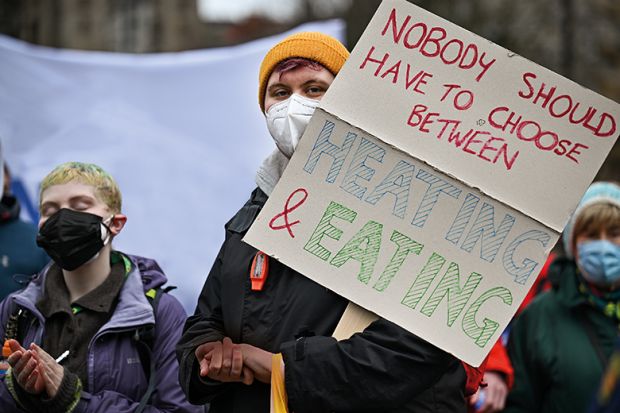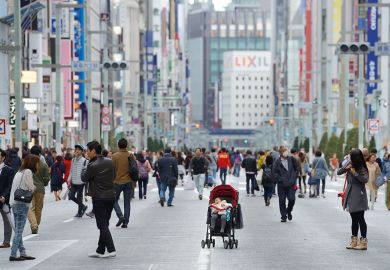Estates and energy
A large slice of the inflationary pressures being placed on economies is driven by energy prices, so university estates, and the power they consume, are likely to be among the key areas that vice-chancellors will be scrutinising when it comes to budgets.
However, the actual financial challenge faced by institutions because of energy price hikes is likely to be highly variable and dependent on factors such as how institutions purchase their power, the degree to which national markets are exposed to global price and supply shocks and the steps universities might already have taken towards improving energy efficiency through their net zero targets.
On purchasing, there are examples of institutions combining their buying power in the market to purchase energy ahead of time. In the UK, The Energy Consortium (TEC) acts for about two-thirds of the sector in buying energy direct from wholesale markets and suppliers in advance and managing its exposure to fluctuating gas and electricity prices.
This approach means that currently “universities are not fully exposed; they are insulated from a lot of [the price rises] because they bought a lot of the power well ahead”, said Adam Clarke, TEC’s managing director, although he added that institutions outside consortia such as TEC might be “coming out of energy deals and having to secure new contracts at a very high price”.
Consortia such as TEC can also buy universities “a little bit of time for them to start to assess what preventative actions can be taken” in terms of consuming less energy in the short term or investing in longer-term measures that also achieve their carbon reduction goals.
Such longer-term schemes might include universities moving to renewable sources, generating their own power (such as by installing solar panels), retrofitting existing buildings to energy-efficient standards and ensuring that new construction projects are fully sustainable.
According to Thomas Estermann, director for governance, funding and public policy development at the European University Association, in some ways, the current energy crunch had the potential to be a “positive” driver towards achieving green goals, although the challenge was likely to be funding.
“This situation is a push to go even further in that direction and speed up the green transition. The challenge that we have is that many of these developments require prior investment,” he said.
In terms of construction, Sir Anton Muscatelli, principal of the University of Glasgow, also pointed out that building costs themselves were being heavily impacted by the war in Ukraine.
“Metals like iron, steel and nickel are major exports of Russia and Ukraine, as are by-products of high-energy production such as glass, cement, petrochemicals and neon, which is needed for electronics manufacturing. The costs of building materials are rising rapidly,” he said.
As a result, universities planning capital projects and looking to tender contracts could “suddenly face very significant increases in building and IT costs”, he added.
Simon Baker
Students
With soaring rates of inflation set to hit Western nations, experts said universities were likely to raise tuition fees for international students, squeezing middle-class families in supplier countries who save to send their children to study overseas.
Janet Ilieva, founder of Education Insight and an expert on global student mobility flows, said rising costs were “hitting hard” at both supply and demand for higher education.
“High inflation, coupled with fixed tuition fees for home students over the next two years [in England], will continue to pressure universities to use international tuition fees to cross-subsidise home students,” she said.
But among the largest sending countries, the picture is varied. In particular, Chinese students appear to be largely insulated from inflation-related university fee hikes.
“China is relatively robust to price fluctuations,” said Ms Ilieva. She noted that Chinese parents benefited from relatively low inflation, combined with a stable yuan and a smaller higher education bill as a result of its one-child policy, which means “the combined income of several households is being invested in the education of one child”.
Richard Coward, chief executive of the consultancy Global Admissions, agreed. “The current living cost inflation is not perceived as any change,” he said, because inflation has been reflected in UK and US student fees for the past 10 to 20 years.
But Indian students – another significant cohort for many Western nations – look set to be hit harder by rising costs, said Ms Ilieva.
“Unlike in China, students from India are price-sensitive and highly likely to be affected by price fluctuations, such as changes in tuition fees, interest rate fluctuations and inflationary pressures,” she said.
For roughly 900,000 students from Asia and Africa, rising costs could narrow already limited study abroad options, said Mr Coward. He estimated that of these students, 500,000 had been studying in China – which is still largely closed because of Covid – while 315,000 had studied in Russia and 80,000 in Ukraine – both of which are directly involved in the war in eastern Europe. These students might now consider South Korea, Malaysia, Europe – “or might not be studying abroad”, he said.
Although Ms Ilieva said it might be one or two years before the impact of inflation becomes fully apparent, she cautioned against universities relying too heavily on international students – from Asia or elsewhere – to subsidise budgets.
“While it is very positive to see a surge in international student demand, it is mainly concentrated in price-sensitive countries,” she said.
Pola Lem

Staffing
Since 2008’s financial crash, universities have kept annual pay rises low, often battling with unions over whether the increase should be 1 per cent or 2 per cent.
But with inflation soaring at its highest level for a generation, the clamour for wages that keep up with the ever-rising cost of living is already leading to industrial unrest.
For universities – which often spend most of their budgets on staffing – the trickiness of striking a balance between ensuring that employees are properly remunerated and keeping costs down is compounded by other factors, not least because in many countries pay is negotiated by a centralised body.
Jake Rosenfeld, associate professor of sociology at Washington University in St Louis, said the days when universities could “get by” with low wage increases were over for the time being.
Faculty members’ demands for better pay were being bolstered by the relative financial health of their universities, many of which had weathered the pandemic better than expected, he said.
But it is the discrepancies between the finances of UK institutions that will place extra strain on the next round of national bargaining, according to Sir Anton Muscatelli, principal of the University of Glasgow.
He predicted that in this pay round, institutions with healthy finances will wish to protect their staff from significant cost-of-living increases, especially after two difficult years of managing Covid. But those universities whose revenues are less protected from inflation may resist.
This could lead to more industrial action if the national settlement is too low, he added, and might lead to better-off institutions seeking additional ways to compensate colleagues outside the national framework, such as one-off additional payments.
This was seen during the pandemic in Australia, where the University of Sydney was among those to give bonuses as national pay negotiations stalled.
The country’s strict Covid travel rules afforded academics extra leverage because potential replacements from abroad were prevented from getting visas.
Although this factor is now diminishing, many are using the threat of leaving to bolster pay, particularly in the US, where salaries can vary widely depending on how in-demand a faculty member is.
Jonathan Wolff, associate professor of economics at Miami University, said buoyant jobs markets in other industries would tempt in-demand academics to move, particularly in sectors such as pharmaceuticals and defence that are receiving significant investment worldwide.
For others, there is seemingly still a reluctance to ask for the large rises needed to keep up with inflation.
Dr Rosenfeld said some scholars were resigned to meagre rises, and “so there might not be the expected pushback against universities that don’t raise pay to meet price increases”.
Tom Williams
Research
Universities may seek to block researchers from applying for grants if rampant inflation worsens the financial shortfall that comes with winning research council funding, research leaders have warned.
In the UK, the body UK Research and Innovation (UKRI) and its associated research councils cover only 80 per cent of the full economic cost of research projects; institutions are expected to provide the remaining 20 per cent. However, with the cost of energy, equipment, contracted services and staff rising at a faster rate than the 2 per cent to 3 per cent a year assumed in most funded grants, there are concerns that universities will have to dig even deeper into their budgets to support research.
“Research is already hugely cross-subsidised, so higher inflation costs will squeeze universities’ general research budgets,” explained Jennifer Stergiou, chair of the Association of Research Managers and Administrators, and director of research and innovation at Northumbria University.
“They might start saying, ‘We can’t support this grant application going in because we cannot afford the subsidy it will require,’” added Ms Stergiou, who said science and engineering disciplines with higher capital costs would be most at risk.
David Price, vice-provost (research) at UCL, said inflation was “adding to the increasingly unsustainable costing of research. We lose 30 pence in the pound for any research grant we gain, and that rises to 50 pence for [grants from] charities – and frankly, universities cannot afford to keep subsidising charities,” he said. “Unfortunately, the greater the success universities have in providing solutions to health issues, the closer we go to bankruptcy.”
It would be “virtually impossible” to “triage” the 4,000 or so grant applications made by UCL researchers every year to limit losses, continued Professor Price. “The only way we do that is if we said, ‘We’re not doing research on cancer any more’ – and that is inconceivable,” he said.
Research-intensive universities might be hit especially hard by rising energy prices given the cost of running expensive scientific equipment, in particular quantum computers, said John Womersley, former chief executive of the Science and Technology Funding Council.
A single machine could sometimes cost “hundreds of thousands of pounds” to run, even “millions for a really world-class machine”, said Professor Womersley.
“There are also really significant power bills for running the UKRI’s national facilities like Isis and Diamond [both based at Harwell, near Oxford], and for accelerator labs like Cern,” he added.
Colette Fagan, vice-president (research) at the University of Manchester, said the rising costs of recruitment in the IT and construction sectors, “where universities are competing against the private sector”, were starting to be felt, with inflation threatening to erode the real value of UKRI’s three-year budget settlement and quality-related funding. “We’re already seeing supply chain problems with imports related to Brexit and Covid, and inflation costs will also hurt there,” said Professor Fagan. “With student fees frozen and other challenges, we have a bit of a storm here.”
Jack Grove
后记
Print headline: Inflation is back. What does this mean for universities?




